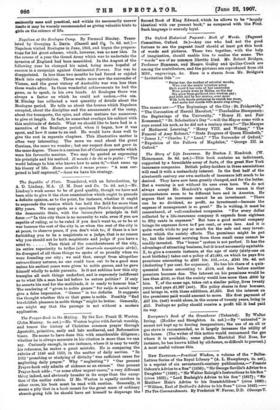• definite opinion, as to the point, for instance, whether
it ought to supersede the version which has held the field for more than fifty years. We may quote as a specimen Plato's description of the democratic State, with the laisses-faire principle in full force :—" In this city there is no necessity to rule, even if you are capable of ruling, or to be ruled if you don't want to, or to be at war because the rest of the city is, or when the rest of the city is at peace, to observe peace, if you don't wish to; if there is a law forbidding you to be a magistrate or a judge, that is no reason why you should not be both magistrate and judge if you have a mind to Then think of the considerateness of the city, its entire superiority to trifles (oil' 6-rwarioi3s oluspaoy(a abris), its disregard of all those things we spoke of so proudly when we were founding our city ; we said that, except from altogether extraordinary natures, no one could turn out to be a good man unless his earliest years were given to noble games, and he gave himself wholly to noble pursuits. Is it not sublime how this city tramples all such things underfoot, and is supremely indifferent as to what life a man has led before he enters politics P If only he asserts his seal for the multitude, it is ready to honour him." The rendering of "given to noble games" for suf(in iv nakol's may give a false impression. " Games" is too definite. It suggests the thought whether this or that game is noble. Possibly "find his childish pleasure in noble things" might be better. Generally, one might say that the passage is not without a modern application.










































 Previous page
Previous page